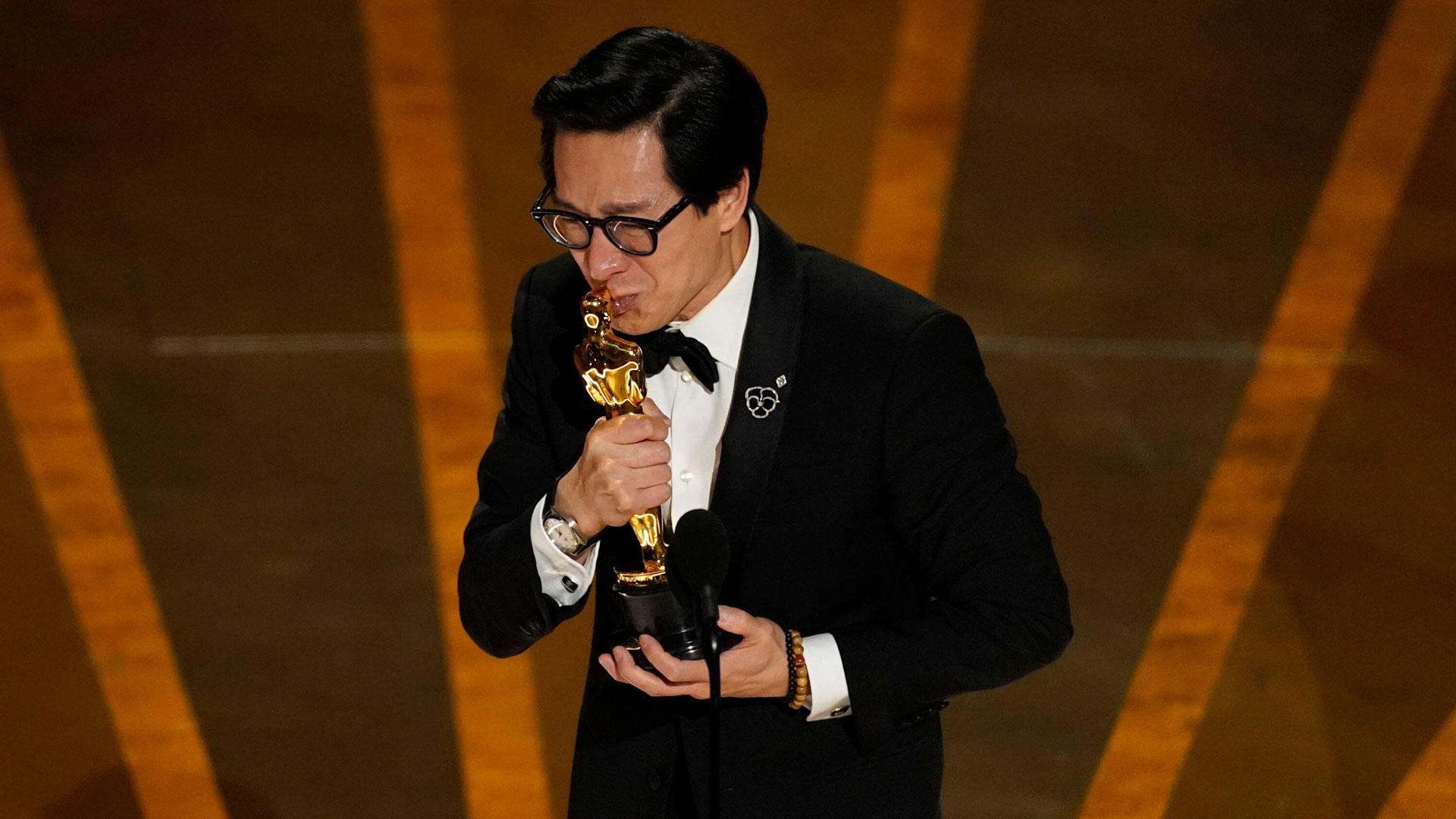Several notable names at last night’s Oscars were spotted sporting blue ribbons on their lapels and dresses, including Guillermo del Toro (who took home the Oscar for the best-animated feature for Pinocchio), best actor/actress nominees Cate Blanchett and Bill Nighy, All Quiet On The Western Front director Edward Berger and Triangle of Sadness’s Dolly de Leon. The ribbons were a show of support and solidarity with the United Nations Refugee Agency’s #WithRefugees campaign and were created by the Knotty Tie Company, an organisation that helps refugees with employment and training in the US.
It’s a fitting addition to an Oscars ceremony that was all about celebrating immigration and diversity, from the runaway success of Everything Everywhere All At Once and the joyous speeches by its multi-racial cast and creators, to Black Panther: Wakanda Forever costume designer Ruth E Carter’s shout-out to “the superhero that is a Black woman,” as she became the first woman of colour in history to become a double Oscar winner. MM Keeravani, the composer of Best Original Song winner Naatu Naatu, from the movie RRR, said (or, rather, sang) that his award was “the pride of every Indian” – Indian cinema is rarely recognised at the Oscars, and Keervani is the second Indian ever to take home the best song prize, beating Lady Gaga and Rihanna in the process.
“For all the little boys and girls who look like me watching tonight, this is a beacon of hope and possibilities,” said Best Actress winner Michelle Yeoh, only the second woman of colour ever to pick up the award in 95 years. “This is proof that dream big, and dreams do come true. And ladies, don’t let anybody tell you you are ever past your prime.”
Perhaps the most telling moment came from Ke Huy Quan, winning the Best Supporting Actor Oscar for Everything Everywhere All At Once. “My journey started on a boat,” he said. “I spent a year in a refugee camp, and somehow I ended up here, on Hollywood’s biggest stage. They say stories like this only happen in the movies – I cannot believe it’s happening to me. This is the American dream!”
- Lee Grant: I wasn’t scared when I was blacklisted. I am now
- Oscars 2023: Why we should celebrate Everything Everywhere All At Once
- The Boy, the Mole, the Fox, the Horse: How Charlie Mackesy created the heroes we need right now
- ‘We’re making disobedience a virtue’ – Guillermo del Toro on Pinocchio
These messages are incredibly important. In the past, the Academy has been heavily criticised for not recognising non-white and international filmmakers. An Oscars year where glass ceilings were, if not smashed, then certainly cracked a little is a signal that things are changing. And that signal needs to be received. Refugee rights are under threat across the world, not least in the UK where the government’s new Asylum Bill will block anyone arriving in the UK on a “small boat” from seeking asylum status. Under these rules, someone like Ke Huy Quan would never have made it into films.
Not all immigrants are refugees of course, and not all Black and Asian people working in the US and UK are immigrants, but almost all will have to struggle against the current in countries that often don’t want to recognise their value. Triumph at the highest level of the most visible industry in the world – movies – really does show that success doesn’t automatically look like a white person with a British or American accent. Almost all of the speeches made some nod to this idea: that dreams come true; that no matter where you come from you can succeed. Several thanked parents, especially mothers, who had worked hard to make better lives for their children, in which they could thrive.









